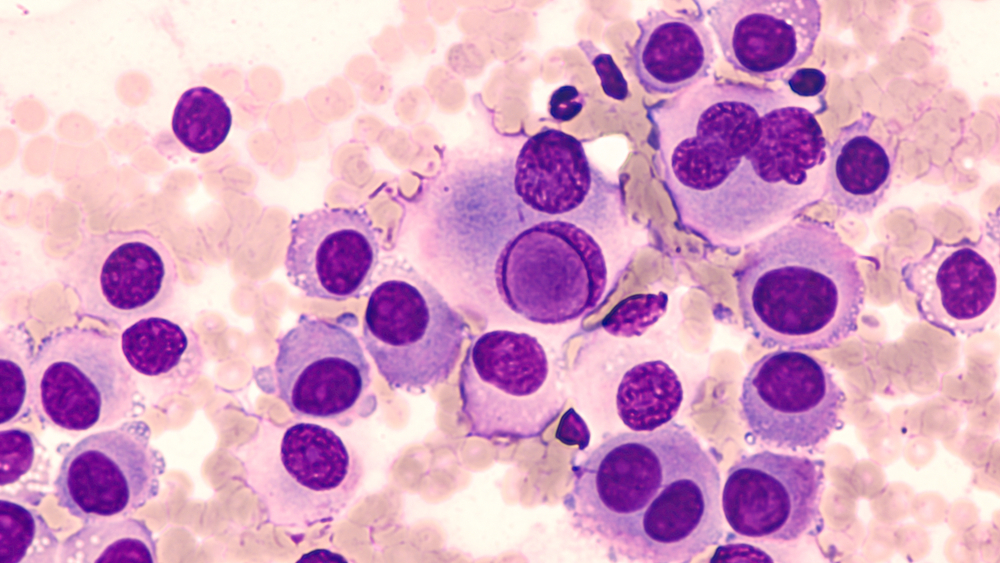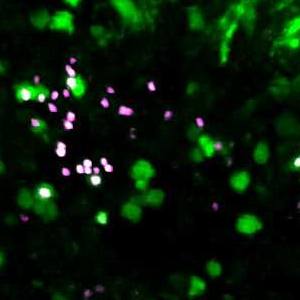-
Mayo Clinic physicians receive Stand up to Cancer Catalyst Award for melanoma research

ROCHESTER, Minn. – Mayo Clinic physicians Matthew Block, M.D., Ph.D. and Tina Hieken, M.D., have received a Stand up to Cancer (SU2C) Catalyst Award to fund melanoma research and a neoadjuvant clinical trial.
“This study, “Neoactivate”, will test two novel approaches to the treatment of patients with high-risk, stage 3 melanoma guided by specific mutations within the melanoma,” says Dr. Hieken. “Two combinations of immunotherapy and targeted therapy will be given before surgery, and all patients will receive immunotherapy after surgery.”
“Our study will look at how effective these drug therapies are when given prior to and after surgery in treating patients with high-risk, stage 3 melanoma,” says Dr. Block. “We also will evaluate key biomarkers of treatment response and patient outcomes.”
Patients participating in the clinical trial will receive the combination of cobimetinib and atezolizumab, or the combination of vemurafenib, cobimetinib and atezolizumab followed by surgery and adjuvant treatment with atezolizumab. All three medicines are manufactured by Genentech, a member of the Roche Group.
Drs. Block and Hieken say they hope to learn if the combination of targeted therapy and immunotherapy before surgery, and immunotherapy after surgery works better than standard adjuvant therapy for treating patients with high-risk, stage 3 melanoma. They also plan to identify biomarkers that may predict treatment response.
“We are so pleased that Dr. Block and Dr. Hieken are bringing this important clinical trial to our SU2C Catalyst portfolio,” says Sung Poblete, Ph.D., president and CEO, Stand up to Cancer. “This team adds depth and breadth to our already robust collaboration with the Mayo Clinic, helping to advance the standard of care for cancer patients.”
“SU2C Catalyst has created a structured and prioritized approach to translational clinical studies, bringing together the key players, such as Drs. Block and Hieken, with oversight from Stand up to Cancer’s renowned academic advisors and representatives of Genentech, in order to accelerate the time to get new treatments to patients,” says Raymond DuBois, M.D., Ph.D., dean of the College of Medicine, Medical University of South Carolina, and chair of the Stand up to Cancer Catalyst ─ Genentech Subcommittee.
As SU2C's scientific partner, the American Association for Cancer Research (AACR) and a Scientific Advisory Committee led by Nobel Laureate Phillip Sharp, Ph.D, conduct rigorous, competitive review processes to identify the best research proposals to recommend for funding, oversee grants administration and provide expert review of research progress.
###
About Stand up to Cancer
Stand up to Cancer raises funds to accelerate the pace of research to get new therapies to patients quickly and save lives now. Stand up to Cancer, a division of the Entertainment Industry Foundation, a 501(c)(3) charitable organization, was established in 2008 by film and media leaders who use the industry’s resources to engage the public in supporting a new, collaborative model of cancer research, and increase awareness about cancer prevention, as well as progress being made in the fight against the disease. As Stand up to Cancer's scientific partner, the American Association for Cancer Research and a Scientific Advisory Committee led by Nobel laureate Phillip Sharp, Ph.D., conduct rigorous, competitive review processes to identify the best research proposals to recommend for funding, oversee grants administration and provide expert review of research progress.
Current members of the Stand up to Cancer Council of Founders and Advisers include Katie Couric, Sherry Lansing, Lisa Paulsen, Rusty Robertson, Sue Schwartz, Pamela Oas Williams, Ellen Ziffren, and Kathleen Lobb. The late Laura Ziskin and the late Noreen Fraser are also co-founders. Sung Poblete, Ph.D., has served as Stand up to Cancer's president and CEO since 2011.
Learn more about Stand up to Cancer.
About Stand up to Cancer Catalyst
SU2C Catalyst establishes a mechanism through which industry and academic scientists in the cancer community conduct Stand up to Cancer collaborative research projects to deliver benefits for patients and society. In addition to creating these opportunities for innovative collaboration, Stand up to Cancer Catalyst significantly expedites the process of going from ideas to contracts to trials, compared to traditional investigator-initiated studies.
About Mayo Clinic Cancer Center
As a leading institution funded by the National Cancer Institute, Mayo Clinic Cancer Center conducts basic, clinical and population science research, translating discoveries into improved methods for prevention, diagnosis, prognosis and therapy. For information on cancer clinical trials, call the Clinical Trials Referral Office at 1-855-776-0015 (toll-free).
About Mayo Clinic
Mayo Clinic is a nonprofit organization committed to clinical practice, education and research, providing expert, comprehensive care to everyone who needs healing. Learn more about Mayo Clinic. Visit the Mayo Clinic News Network.
Media contact:
- Joe Dangor, Mayo Clinic Public Affairs, 507-284-5005, newsbureau@mayo.edu







